On April 1, 2016 I was skimming my twitter feed and I came across a post shared by Will Richardson about Alexandra Elbakyan. According to the Washington Post, “The 27-year-old graduate student from Kazakhstan is operating a searchable online database of nearly 50 million stolen scholarly journal articles, shattering the $10 billion-per-year paywall of academic publishers.”
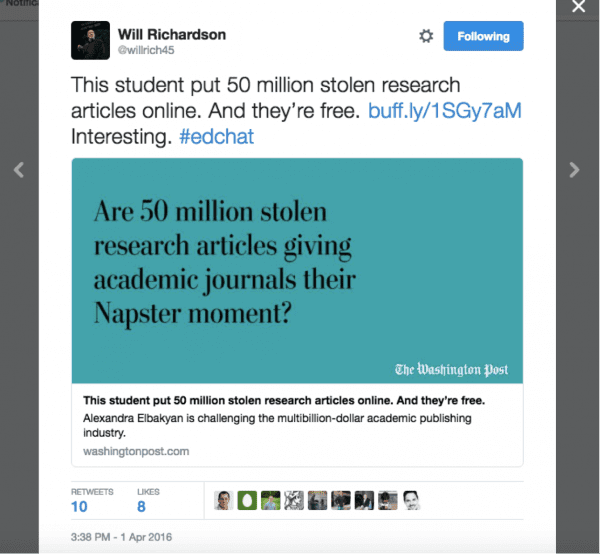
Since this was the first I had heard of this story, and it was April Fool’s Day – I thought this was a joke. How could a graduate student create something I crave so often – open access to research articles?
A few weeks later, I came across WIRED magazine’s opinion editorial, “You Pay to Read Research You Fund. That’s Ludicrous!” – which confirmed the story. The joke was on me. There is a searchable online database for stolen scholarly research articles – and it is called scihub.org
Why is this such an exciting topic for me and why did I find it so hard to believe that people can finally access research previously behind pay walls? I am about to start my EdD this summer, but I am not currently a University student. As such, I have to pay for every article I try to access online unless it has a creative common copyright license. In order for me to learn from research that is often (but not always) publicly funded, I need to pay to learn. As a result, I, and others like myself, are often limited in what we can learn. My learning is limited in the internet era – and it drives me bonkers.
How does this affect our K-12 students? Use Jack Andraka for example. In High School, for a science fair project, Jack found a way to detect for cancer. However, he was not able to access critical research as he did not have the money to pay for the scholarly articles. He used the free and open access abstracts from the journal articles to write up his project proposal that resulted in finding a cancer detector.
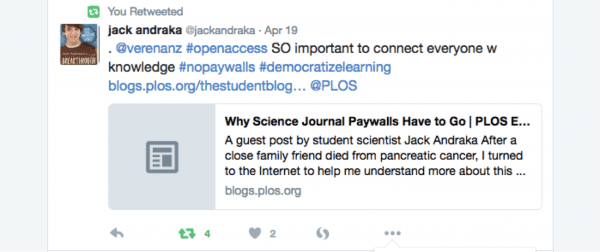
Open access would be an important first step. I would love to see research that is publicly funded by taxes to be publicly available through neighborhood libraries and public school libraries. – Jack Andraka
Jack’s story ended well because he managed to access some of the journal articles, not all in different ways. However – what if we worked to create open access to ALL of our research? What if Jack, and other people around the world, had access to information that could change our lives? Access to research that could save our lives and our world?
On the Internet, we obviously need websites like Sci-Hub where people can access and read research literature. The problem is, such websites often cannot operate without interruptions, because [the] current system does not allow it. … Sci-Hub is a goal, changing the system is one of the methods to achieve it. – Alexandra Elbakyan
I would never argue that researchers do not deserve to paid for their work. I would argue that the current system which is limiting open access to research needs to be reconsidered.
What do you think? How can we better support open access to scholarly journals and articles to ensure access for all?

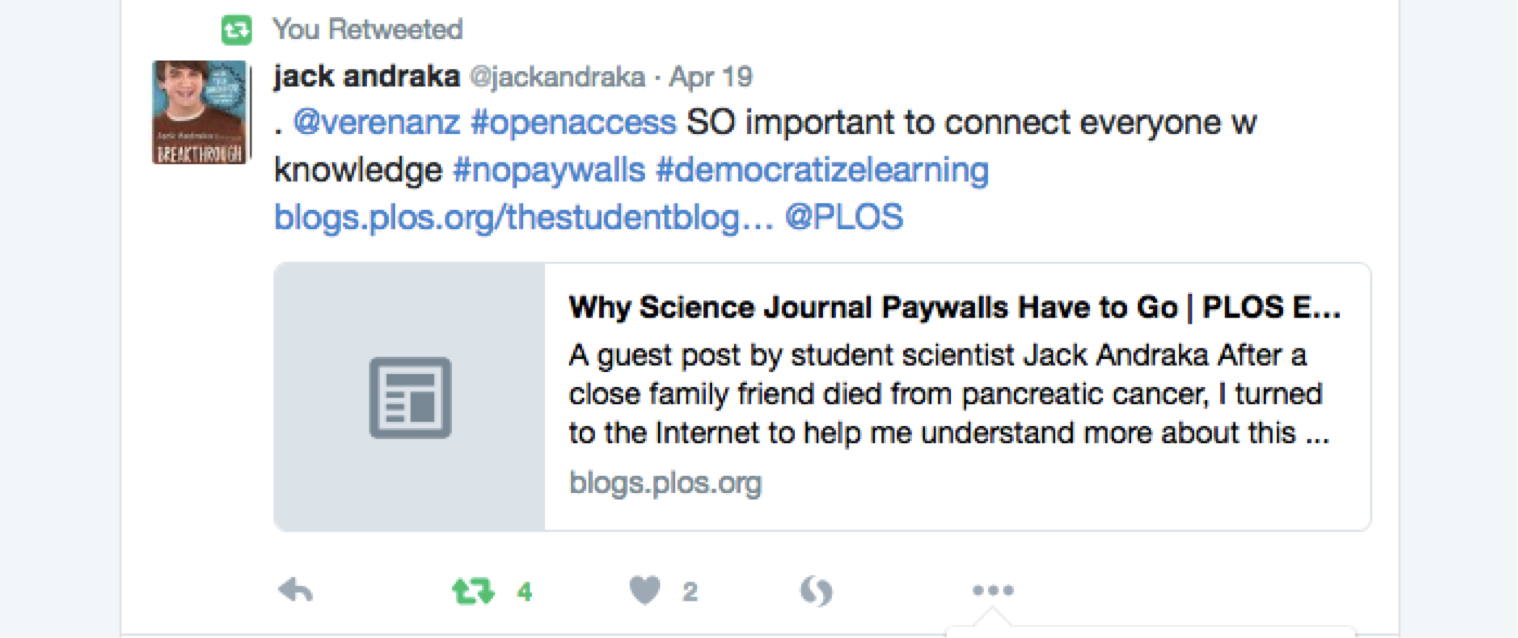
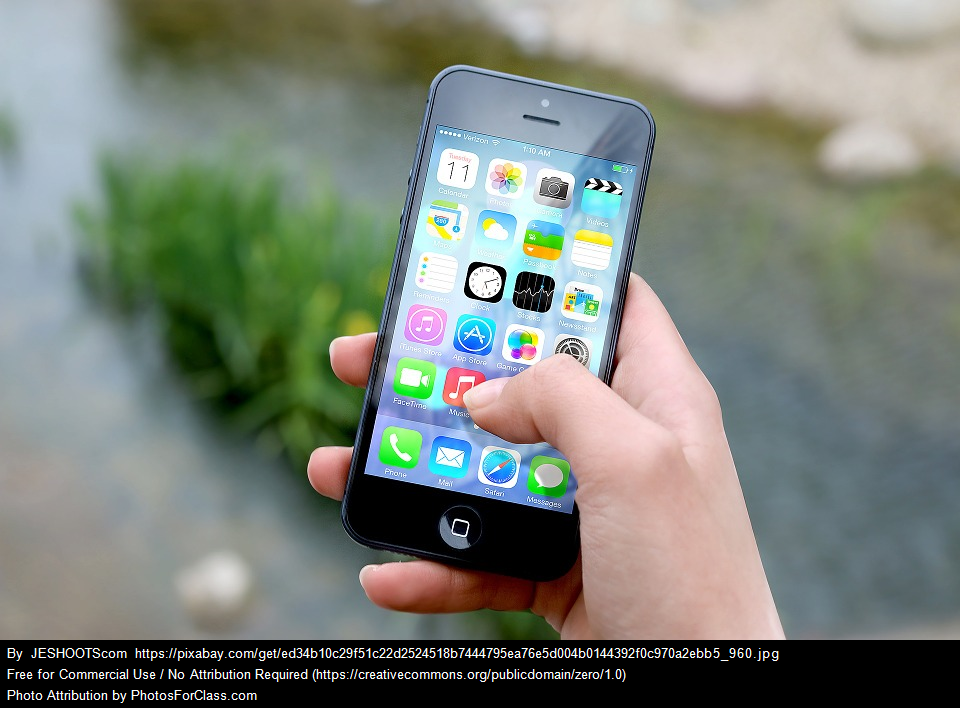


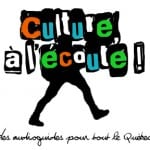
The number of open access journals is growing exponentially, from what I understand. The last time I was at AERA (two years ago) John Willinsky of Open Journal Systems told the audience that there were 43000 peer-reviewed journals out there. At that time, 8000 were open access. That is still a long way to go but, if memory serves me correctly, we are moving in the right direction.
I am interested in hearing more about this topic. So much of my attention remains focused on LEARN’s own open access journal, LEARNing Landscapes. http://www.learninglandscapes.ca
Mary – It is because of dedicated educators like you (and LEARN) that we have access to research and learning! I remember when LEARN told me LEARNing Landscapes was open and free access – I was pleasantly shocked. It is always one of the first places I go when researching education! Thank you for pushing the open barriers!
It’s a bit of a conundrum. Research has to be paid for, but it’s turned into price-gouging, it seems, by a few major players. Generally, students should be able to get the articles they need by getting university library accounts.
The bigger point, to my thinking, is the incredible contributions to science even high school students and undergraduates can make — so they need access. Look at the stories of Jack and Luke Andraka, and Taylor Wilson (nuclear fusion energy) for example.
I linked to your post on the site above (posting 5/25).
It was announced recently that the European Union ministers have agreed to make a lot of scientific research in the region available free of charge by the year 2020.
This is definitely a step in the right direction. I find it scandalous that the top journals currently charge authors as well as readers.